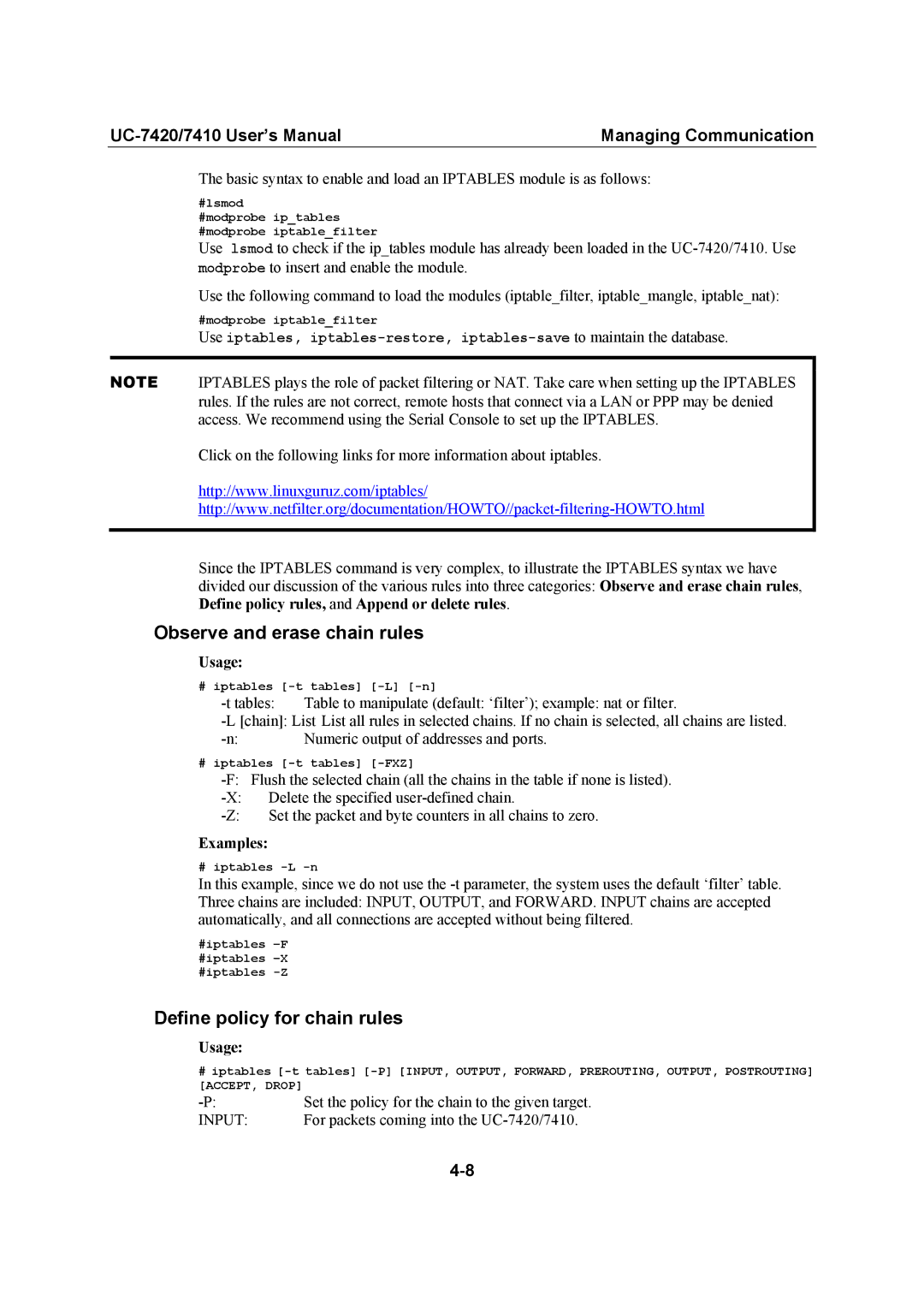
Managing Communication |
The basic syntax to enable and load an IPTABLES module is as follows:
#lsmod
#modprobe ip_tables #modprobe iptable_filter
Use lsmod to check if the ip_tables module has already been loaded in the
Use the following command to load the modules (iptable_filter, iptable_mangle, iptable_nat):
#modprobe iptable_filter
Use iptables,
NOTE IPTABLES plays the role of packet filtering or NAT. Take care when setting up the IPTABLES rules. If the rules are not correct, remote hosts that connect via a LAN or PPP may be denied access. We recommend using the Serial Console to set up the IPTABLES.
Click on the following links for more information about iptables.
http://www.linuxguruz.com/iptables/
Since the IPTABLES command is very complex, to illustrate the IPTABLES syntax we have divided our discussion of the various rules into three categories: Observe and erase chain rules, Define policy rules, and Append or delete rules.
Observe and erase chain rules
Usage:
# iptables
# iptables
Examples:
# iptables
In this example, since we do not use the
#iptables
Define policy for chain rules
Usage:
#iptables
Set the policy for the chain to the given target. | |
INPUT: | For packets coming into the |
